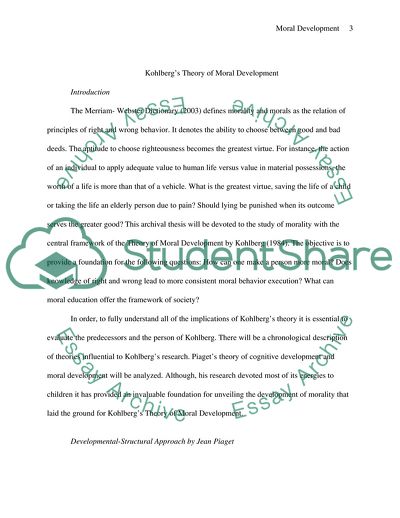Cite this document
(Kohlbergs Theory of Moral Development Coursework, n.d.)
Kohlbergs Theory of Moral Development Coursework. Retrieved from https://studentshare.org/psychology/1724159-explain-kolbergs-theory-of-moral-development-in-adolescents-paying-particular-reference-to-the-transition-from-adoloscent-to-adulthood
Kohlbergs Theory of Moral Development Coursework. Retrieved from https://studentshare.org/psychology/1724159-explain-kolbergs-theory-of-moral-development-in-adolescents-paying-particular-reference-to-the-transition-from-adoloscent-to-adulthood
(Kohlbergs Theory of Moral Development Coursework)
Kohlbergs Theory of Moral Development Coursework. https://studentshare.org/psychology/1724159-explain-kolbergs-theory-of-moral-development-in-adolescents-paying-particular-reference-to-the-transition-from-adoloscent-to-adulthood.
Kohlbergs Theory of Moral Development Coursework. https://studentshare.org/psychology/1724159-explain-kolbergs-theory-of-moral-development-in-adolescents-paying-particular-reference-to-the-transition-from-adoloscent-to-adulthood.
“Kohlbergs Theory of Moral Development Coursework”. https://studentshare.org/psychology/1724159-explain-kolbergs-theory-of-moral-development-in-adolescents-paying-particular-reference-to-the-transition-from-adoloscent-to-adulthood.


